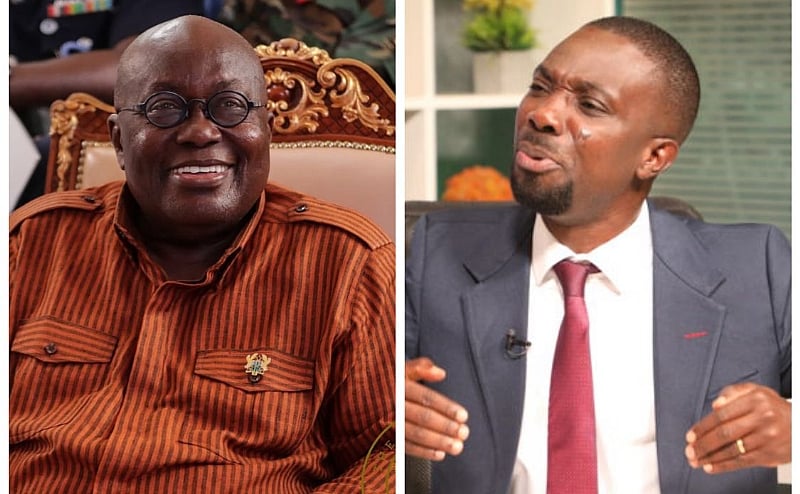Dennis Miracles Aboagye, a close associate of former Vice President Mahamudu Bawumia, has launched a scathing attack on the current administration led by President John Dramani Mahama, asserting that former President Nana Akufo-Addo will soon be exonerated from all accusations leveled against him during his tenure. Aboagye’s remarks center on a document circulating on social media, referred to as the “Onuapayɛ document,” which allegedly outlines a scheme by the Mahama government to unfairly benefit Ibrahim Mahama, the President’s brother, through his businesses. This accusation arises amidst the ongoing dispute between Ibrahim Mahama’s company, Engineers and Planners, and Azuma Resources Ghana Limited concerning the Black Volta mine. Aboagye draws parallels between the current situation and the “Agyapadie” controversy that plagued the Akufo-Addo administration, suggesting a pattern of manufactured narratives aimed at political sabotage.
Aboagye contends that the NDC, while in opposition, readily propagated the “Agyapadie” narrative against Akufo-Addo and his associates, accusing them of corrupt practices. Now, faced with similar allegations, Aboagye claims the NDC is unable to withstand the same scrutiny they subjected their political opponents to. He characterizes their reactions as cries of foul play, threats, and attempts to deflect attention from the allegations. Aboagye employs a strong, almost mocking tone, suggesting that the NDC’s discomfort arises from their inability to “take a small dose of the same medicine they administered barely 200 days ago.” He further reinforces his argument with biblical references, implying divine retribution for those involved in the alleged plot and foreshadowing Akufo-Addo’s imminent vindication.
The “Agyapadie” document, which resurfaced prior to the 2024 general elections, alleges a conspiracy by an “Akyem Mafia” to control Ghana’s political, economic, and social spheres. This anonymously authored document implicated prominent figures like President Akufo-Addo and Okyenhene Osagyefo Amoatia Ofori Panin, portraying them as central figures in this alleged power grab. The document’s claims ranged from maneuvering to elevate the Okyenhene’s status as the most powerful traditional ruler to orchestrating changes in the leadership of the Social Security and National Insurance Trust (SSNIT) and restructuring the banking sector – actions that, coincidentally or not, subsequently transpired. The timing of the document’s resurfacing, just before a crucial election, naturally fueled speculation about its political motivations.
Aboagye’s argument hinges on the notion of hypocrisy, suggesting that the NDC is now experiencing the very tactics they employed against the previous administration. He frames the current allegations surrounding the “Onuapayɛ document” as a mirror image of the “Agyapadie” controversy, implying that the NDC is now reaping what they sowed. This emphasizes the cyclical nature of political accusations and the potential for such tactics to backfire. By drawing a direct comparison between these two incidents, Aboagye seeks to discredit the NDC’s outrage, portraying it as disingenuous and self-serving. His use of biblical verses adds a moral dimension to his argument, suggesting that justice will ultimately prevail and vindicate Akufo-Addo. The timing of this controversy, so close to a general election, inevitably adds layers of complexity and raises questions about the motivations behind the release and dissemination of such documents.
The “Onuapayɛ document,” much like its predecessor “Agyapadie,” stirs the pot of political intrigue and fuels public speculation. The document’s allegations of preferential treatment for Ibrahim Mahama, against the backdrop of the Black Volta mine dispute, create a narrative of favoritism and potential abuse of power. This narrative resonates with anxieties about corruption and cronyism within government, particularly when involving individuals closely connected to those in power. The controversy taps into existing political fault lines and further polarizes the public discourse. The accusations, regardless of their veracity, serve as ammunition in the ongoing political battle, providing fodder for both sides to attack and defend their respective positions.
The timing of these accusations, so close to a major election, raises questions about the potential for political maneuvering and manipulation. The resurgence of the “Agyapadie” document and the emergence of the “Onuapayɛ document” within this politically charged atmosphere inevitably raise suspicions about their true purpose. Are they genuine attempts to expose corruption, or are they calculated moves to damage reputations and sway public opinion? Determining the authenticity and motivations behind these documents remains a critical challenge in the lead-up to the election. The public is left to grapple with conflicting narratives, attempting to discern truth from politically motivated propaganda. This underscores the need for thorough investigation and transparent reporting to ensure accountability and informed public discourse.


